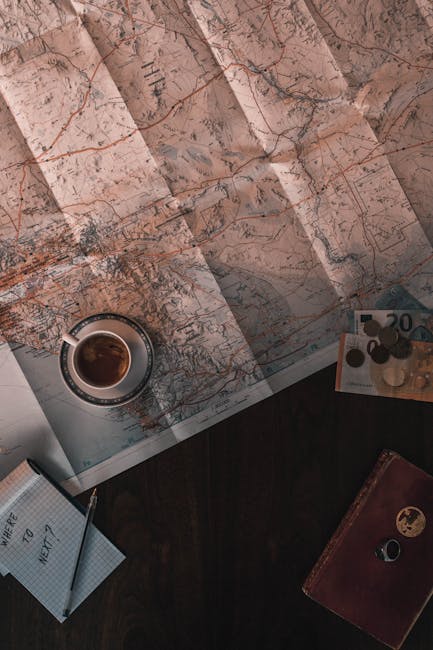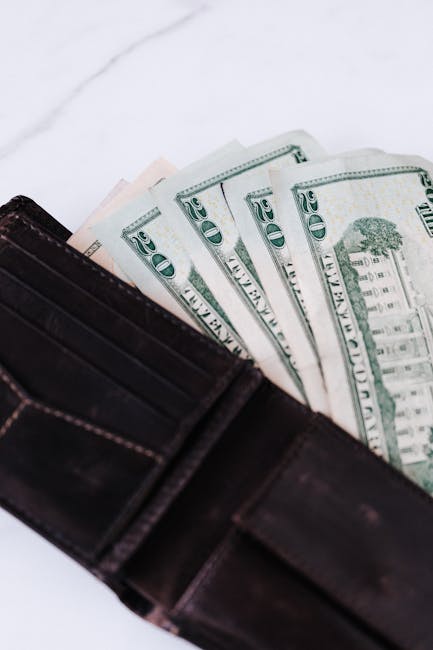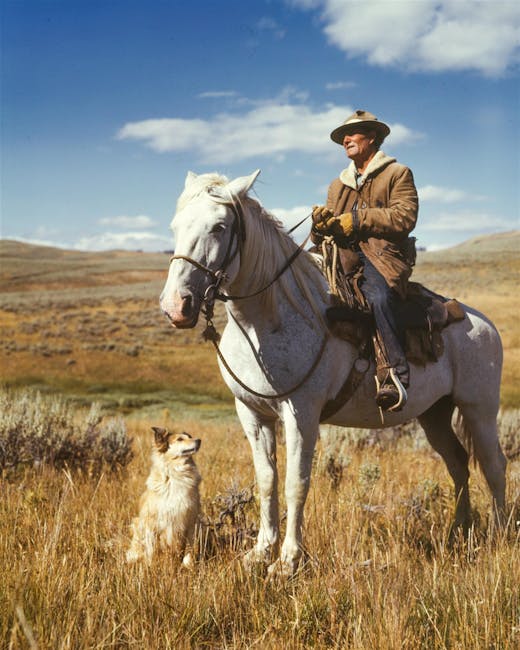Australia on a Budget: Travel Without Breaking the Bank

Australia on a Budget: Travel Without Breaking the Bank
G'day, mate! Thinking about exploring the land Down Under but worried about the cost? I get it. Australia has a reputation for being pricey, and let's be honest, it can be. But don't let that deter you! With a bit of planning and some insider knowledge, you can experience the beauty and adventure of Australia without emptying your bank account. I've spent years exploring this incredible country on a shoestring, and I'm here to share my secrets with you. Consider me your Aussie budget travel buddy! Let's dive in and discover how to make your dream trip a reality.
Planning is Key: The Foundation of Your Budget Adventure

The single most important thing you can do to save money on your Australian adventure is to plan ahead. Spontaneity is great, but last-minute bookings in Australia often come with a hefty price tag. Think of it like this: a little planning now means more money for fun later!
1. Time of Year: Avoiding Peak Season
Australia's peak season generally runs from December to February (summer) and June to August (winter holidays). During these times, flights, accommodation, and tours skyrocket in price. If you can, travel during the shoulder seasons (March-May and September-November). The weather is still fantastic in many parts of the country, and you'll find significantly lower prices and fewer crowds. For example, travelling to the Northern Territory in their 'wet' season (November - April) can mean significant savings, just be aware of increased rainfall and potential road closures.
2. Flight Deals: Snagging the Best Fares
Flights are often the biggest expense. Here are my go-to strategies for finding cheap flights to and around Australia:
- Be Flexible with Dates: Use flight comparison websites like Skyscanner, Google Flights, and Momondo, and be flexible with your travel dates. Even shifting your departure by a day or two can make a huge difference. Many sites allow you to view prices across an entire month.
- Consider Indirect Flights: Direct flights are convenient, but they're also the most expensive. Consider taking a flight with a layover or two. This can save you hundreds of dollars.
- Book in Advance (But Not Too Early): Aim to book your international flights about 2-4 months in advance. For domestic flights within Australia, 1-2 months is usually a good timeframe.
- Sign Up for Email Alerts: Many airlines and flight comparison websites offer email alerts for price drops. Sign up and be ready to pounce when you see a good deal.
- Consider Different Airports: Sometimes flying into a smaller or less popular airport nearby can save you money. For example, flying into Avalon Airport (near Geelong) instead of Melbourne Airport might be cheaper if you are heading to the Great Ocean Road.
3. Accommodation on a Budget: Beyond the Hotel
Accommodation can quickly eat into your travel budget. Here are some affordable options:
- Hostels: Hostels are a fantastic option for budget travelers, especially if you're traveling solo or with a friend. They offer dorm rooms at affordable prices, and often have social areas where you can meet other travelers. Websites like Hostelworld and Booking.com are your friends here.
- Airbnb: Airbnb can be a great option for finding affordable apartments or rooms, especially if you're traveling with a group. Look for places with kitchen facilities so you can cook your own meals.
- Camping: Australia is a camper's paradise! With stunning national parks and campgrounds, camping is a fantastic way to experience the country's natural beauty while saving money. You'll need to invest in camping gear, but it'll pay for itself in no time. Check out websites like Parks Australia and individual state park websites for information on campgrounds and booking.
- Free Camping (Carefully!): Free camping is possible in some areas, but it's crucial to do your research and ensure it's legal and safe. Apps like WikiCamps Australia can be invaluable for finding free campsites and reading reviews. Always leave the campsite cleaner than you found it!
- House Sitting: If you're up for looking after someone's home and pets while they're away, house sitting can be a fantastic way to get free accommodation. Websites like TrustedHousesitters connect homeowners with responsible house sitters.
- WWOOFing (Willing Workers on Organic Farms): If you're interested in organic farming and don't mind getting your hands dirty, WWOOFing is a great option. You'll work on organic farms in exchange for free accommodation and food.
- Consider Location: Staying slightly outside the city center can often save you a significant amount on accommodation. Public transport in most Australian cities is good, so getting around is usually easy.
4. Transportation: Getting Around Affordably
Australia is a vast country, and getting around can be expensive. Here are some budget-friendly transportation options:
- Public Transport: Utilize the public transport systems in major cities like Sydney, Melbourne, and Brisbane. Purchase a multi-day pass or a travel card for the best value.
- Buses: Long-distance buses, such as Greyhound Australia and Premier Motor Service, are a cheaper alternative to flying between cities. They're not the fastest option, but they're comfortable and affordable.
- Rental Cars (with Caveats): Renting a car can be a good option for exploring certain regions, especially if you're traveling with a group. However, be mindful of fuel costs, insurance, and parking fees. Compare prices from different rental companies and look for deals. Consider renting a smaller, more fuel-efficient car.
- Campervan/RV Rental: If you're planning on camping, renting a campervan or RV can be a great option. It combines your accommodation and transportation costs, and gives you the freedom to explore at your own pace.
- Hitchhiking (Use Caution): While hitchhiking is still practiced in some parts of Australia, it's important to be aware of the risks. It's generally safer in rural areas, but always exercise caution and use your common sense. Let someone know your plans and route.
- Ride Sharing: Platforms like BlaBlaCar connect drivers with passengers heading in the same direction, allowing you to share the cost of fuel.
- Internal Flights (Carefully): While I suggested avoiding flights earlier, sometimes they can be the most economical option, especially if you're crossing large distances. Keep an eye out for sales with budget airlines like Jetstar, Virgin Australia, and Tigerair. But remember to factor in baggage fees!
Eating on a Budget: Savouring Australia Without Spending a Fortune

Food can be a significant expense, especially if you're eating out for every meal. Here's how to eat well in Australia without breaking the bank:
- Cook Your Own Meals: The easiest way to save money on food is to cook your own meals. Take advantage of hostel kitchens, Airbnb apartments with kitchens, or camping stoves.
- Shop at Supermarkets: Supermarkets like Coles, Woolworths, and Aldi are your best friends for affordable groceries. Aldi is generally the cheapest option.
- Pack Snacks: Pack snacks like fruit, nuts, and muesli bars to avoid buying expensive snacks on the go.
- Take Advantage of Free BBQ Facilities: Many parks and beaches in Australia have free BBQ facilities. Pack some sausages or veggies and enjoy a picnic.
- Look for Lunch Specials: Many restaurants offer lunch specials that are significantly cheaper than dinner.
- Happy Hour Deals: Take advantage of happy hour deals at bars and pubs for discounted drinks and appetizers.
- Farmers Markets: Farmers markets are a great place to find fresh, local produce at reasonable prices.
- Limit Alcohol Consumption: Alcohol is expensive in Australia. Cutting back on your alcohol consumption will save you a lot of money.
- Take Advantage of Free Food Events: Keep an eye out for free food events, such as festivals and community gatherings.
- Consider a Portable BBQ: If you plan on doing a lot of camping, investing in a small portable BBQ can be a game-changer.
Free and Cheap Activities: Exploring Australia's Treasures Without a Hefty Price Tag

Australia is packed with incredible things to see and do, and many of them are free or very affordable. Here are some ideas:
- Visit National Parks: Many of Australia's national parks charge entry fees, but some are free. Even if there is a fee, it's usually worth it for the stunning scenery and hiking trails. Check the Parks Australia website or individual state park websites for information on fees and permits.
- Hit the Beach: Australia is famous for its beautiful beaches, and most of them are free to access. Pack your towel, sunscreen, and a good book, and enjoy a day of swimming, sunbathing, and surfing.
- Go for a Hike: Australia has countless hiking trails, ranging from easy coastal walks to challenging mountain treks. Many of these trails are free to access.
- Explore Cities on Foot: Walking is a great way to explore Australian cities and discover hidden gems. Take a free walking tour or simply wander around on your own.
- Visit Free Museums and Art Galleries: Many museums and art galleries in Australia offer free admission to their permanent collections. Check their websites for details.
- Attend Free Events: Look out for free events, such as festivals, concerts, and markets.
- Go Stargazing: Australia's vast, unpolluted skies are perfect for stargazing. Find a dark spot away from city lights and enjoy the breathtaking views of the night sky.
- Learn to Surf (Affordably): Group surf lessons can be a relatively inexpensive way to learn the basics. Look for deals or try to find a friend who can teach you.
- Volunteer: Volunteering is a great way to give back to the community and experience Australia from a different perspective. There are many opportunities to volunteer with environmental organizations, animal shelters, and community groups.
- Utilize Free Wi-Fi: Take advantage of free Wi-Fi hotspots in libraries, cafes, and public spaces to save on data charges.
Working While Travelling: Funding Your Adventure

If you're planning a longer trip to Australia, consider working while you travel. This can help you offset your expenses and extend your adventure. Here are some options:
- Working Holiday Visa: The Working Holiday Visa (subclass 417) allows eligible citizens from certain countries to work and travel in Australia for up to two years. You can do any kind of work, but you can only work for one employer for a maximum of six months.
- Student Visa: If you're enrolled in a full-time course of study in Australia, you may be eligible for a student visa, which allows you to work part-time while you study.
- Farm Work: There's always a demand for farm workers in Australia, especially during harvest season. You can find farm work through online job boards, recruitment agencies, or by contacting farms directly. This can also extend your Working Holiday Visa!
- Hospitality Work: Australia's hospitality industry is always looking for staff. You can find work in restaurants, bars, cafes, and hotels.
- Freelancing: If you have skills in writing, design, photography, or other online areas, you can work as a freelancer while you travel.
- Online Tutoring: Online tutoring is becoming increasingly popular, and it's a great way to earn money while you travel.
Essential Budget Travel Tips: The Nitty-Gritty Details

Here are some final tips to help you save money on your Australian adventure:
- Set a Daily Budget: Determine how much you can afford to spend each day and stick to it. Track your expenses and adjust your spending as needed.
- Negotiate Prices: Don't be afraid to negotiate prices, especially when booking tours or accommodation.
- Avoid Tourist Traps: Tourist traps are often overpriced and underwhelming. Seek out local experiences instead.
- Take Advantage of Free Activities: There are many free things to see and do in Australia. Take advantage of them!
- Pack Light: Packing light will save you money on baggage fees and make it easier to get around.
- Get Travel Insurance: Travel insurance is essential, especially if you're planning on doing any adventurous activities.
- Learn Some Aussie Slang: Knowing some Aussie slang will help you connect with locals and feel more like a local yourself.
- Be Prepared for the Sun: Australia has a strong sun, so be sure to wear sunscreen, a hat, and sunglasses.
- Stay Hydrated: Drink plenty of water, especially when you're active.
- Be Aware of Wildlife: Australia is home to some dangerous animals, so be aware of your surroundings and take precautions.
- Download Offline Maps: Download offline maps to your phone so you can navigate even when you don't have an internet connection.
- Inform Your Bank: Let your bank know you'll be traveling to Australia so they don't block your card.
- Embrace the Adventure: Be open to new experiences and enjoy the journey!
Specific Examples: Making it Real

Let's look at a few specific examples of how to apply these tips:
Example 1: Sydney on a Shoestring
Instead of staying in a fancy hotel near the Harbour Bridge, opt for a hostel in Kings Cross or Bondi. Take public transport instead of taxis. Visit the free Royal Botanic Garden, walk across the Harbour Bridge, and relax on Bondi Beach. Pack a picnic lunch and enjoy it in Hyde Park. Take advantage of free walking tours to learn about the city's history and culture.
Example 2: Exploring the Great Barrier Reef Affordably
Instead of booking an expensive liveaboard diving trip, consider staying in a budget-friendly hostel in Cairns or Port Douglas. Take a day trip to the reef on a cheaper snorkeling tour. Pack your own snacks and drinks to avoid paying high prices on the boat. Look for deals on diving equipment rental.
Example 3: Road Tripping the East Coast
Rent a campervan or RV instead of staying in hotels. Camp at free or low-cost campgrounds along the way. Cook your own meals and buy groceries at supermarkets. Take advantage of free activities like hiking, swimming, and visiting beaches. Share the driving with a friend to avoid fatigue.
Final Thoughts: Your Aussie Adventure Awaits!

Traveling Australia on a budget is definitely possible. It requires a bit of planning, flexibility, and a willingness to embrace the adventure. But the rewards are well worth the effort. You'll get to experience the beauty and wonder of this incredible country without emptying your bank account. So, pack your bags, grab your sunscreen, and get ready for an unforgettable Aussie adventure! Remember to be respectful of the environment and the local culture. And most importantly, have fun! Australia is waiting to welcome you with open arms (and maybe a cold beer or two). Good luck, and enjoy your trip, mate!
Don't forget to share your own budget travel tips in the comments below! I'd love to hear about your experiences and learn from your adventures.
Post a Comment